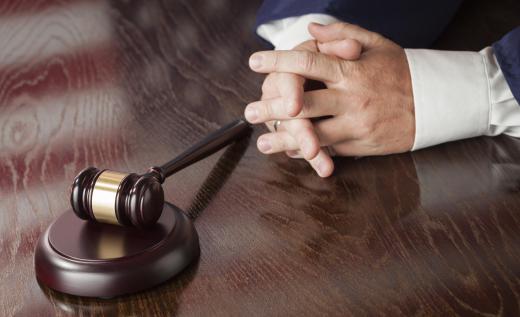A civil trial refers to legal proceedings held in a court for a non-criminal dispute, such as a medical malpractice lawsuit. Such trials are settled in civil courts which operate independent of but similar to criminal courts. The exact process, however, can vary from one jurisdiction to another. The penalties involved for the guilty parties in civil cases are generally financial damages and injunctions. Since these are often private matters, such trials can be very expensive.
One major difference between a criminal trial and a civil trial is that the latter is heard in a civil court. Although some of the proceedings may vary, the civil process is characterized by many of the same procedures as a criminal trial. The party who files the case is known as the plaintiff and the person against whom accusations are made is known as the defendant. Both parties generally have rights to legal representation and there is also commonly an opportunity to have a jury trial.

There are a wide range of matters that can prompt people to lodge civil claims. These include unpaid debts, property damage, and personal injury. The trial process often involves motions and hearings. Various types of evidence may be presented or suppressed. Witnesses may be subpoenaed to court and their testimonies may be cross examined.
In most of these cases, the plaintiff aims to receive a financial award. These are often referred to as damages. Sometimes the awarded damages are limited to actual costs that were incurred by the fault of the defendant. These are known as compensatory damages.

At other times, the defendant may be ordered to pay larger sums of money to punish him or to discourage repetition of the harmful acts. These are generally referred to as punitive damages. A civil trial may also result in the judge issuing other orders or injunctions, which are demands to discontinue some type of behavior. If either party feels that the ruling is unfair, she will generally have an opportunity to appeal the decision.

Although a civil trial does not normally pose a threat of criminal consequences such as incarceration or community service, orders issued by judges in these cases are binding. If those orders are ignored, the result can be a criminal punishment. The same is true if a person who is engaged in a civil trial is found to be in contempt of court.
